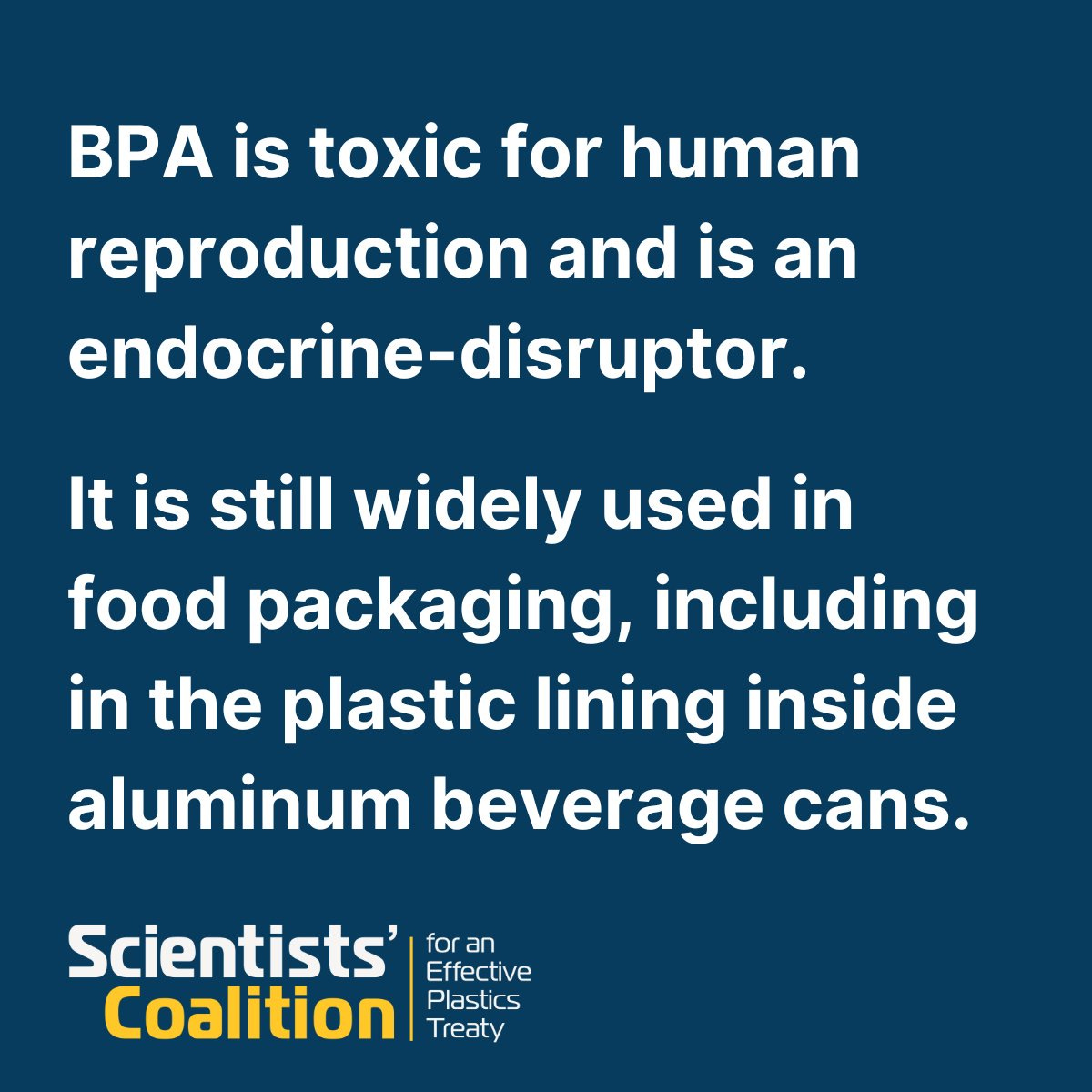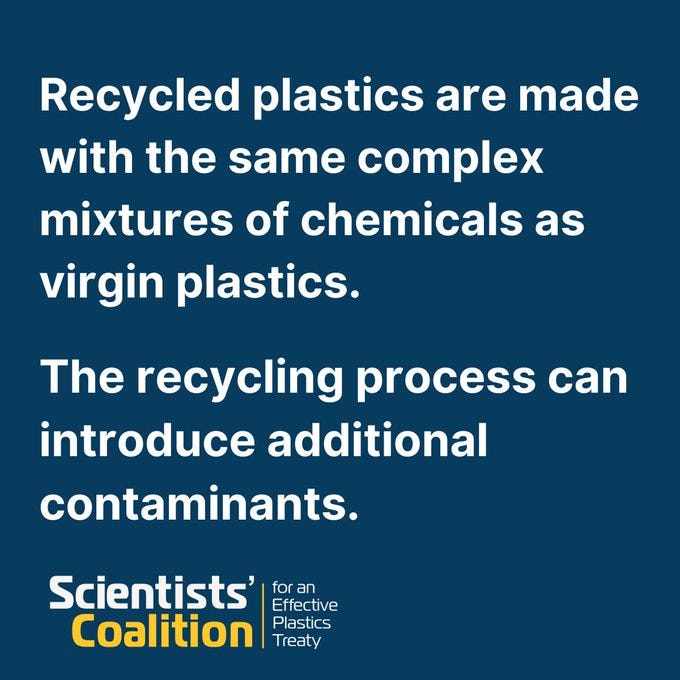Strong Plastics Treaty Needed to Protect People and Planet
+3600 chemicals in plastic food packaging -- some are now in our bodies
Nearly 1000 of the more than 3,600 chemicals found in plastic food packaging are also found in human bodies, according to new research in the journal Nature.
"Every type of plastic contains unknown chemicals," and many of those chemicals may well be unsafe, says Jane Muncke, Ph.D., an environmental toxicologist.
For example, a chemical commonly found in plastic packaging and lining of food cans increases the risk of autism in young boys, a new study has found.
“Exposure to plastic chemicals during pregnancy has already been shown in some studies to be associated with subsequent autism in offspring.”
Human health studies have only been conducted in the last few years, so we don’t know how big a health impact plastic pollution is having on us. According to one estimate, health problems related to exposure to harmful chemicals in plastics cost the U.S. $250 billion a year.
I’ve summarized some of these studies' findings in previous NtK issues: Plastic Planet = Plastic People and Becoming Plastic People on a Plastic Planet.
Plastic pollution is one of the greatest environmental challenges facing the planet.
Need-to-Know: We have a once-in-a-lifetime chance to end plastic pollution
A legally binding UN Global Plastic Treaty could limit the amount of new plastic produced and control the use of 1000s of toxic chemicals in plastics.
The final plastic treaty negotiations will soon be underway in Busan, Korea, starting November 25. I attended a previous negotiation session, documented some of the latest studies, and included a link to a very good documentary film on all this. (See NtK Microplastic Pollution Linked to Rise in Chronic Diseases.)
Sadly, I won’t be traveling to Busan to cover the final session.
The plastic and oil and gas industries are vigorously lobbying against anything that would curb plastic production. They have enormous influence over government delegations from the U.S., China, India, Saudi Arabia, and the Gulf States. These are some of the countries that oppose any control measures.
Need-to-Know: Everyone wants less plastic
Not surprisingly, the vast majority of people in every country support cutting plastic pollution. And 80% want to reduce the amount of new plastic being made.
Our annual plastic pollution would fill New York City’s Central Park with plastic waste as high as the Empire State Building.
The world creates 57 million tons of plastic pollution every year, spreading it from the deepest oceans to the highest mountaintops and into people’s bodies.
Microplastics are in our air and in our drinking water. Microplastics and the chemicals they carry are in our bodies, including our hearts and brains, and in newborn babies.
Need-to-Know: Over 200 million tons of single-use plastics made every year
No one needs a plastic-wrapped cucumber—all that does is allow the many different chemicals in the polyethylene plastic wrap to contaminate the cucumber.
Need-to-Know: Your help is needed for a strong plastics treaty to end plastic pollution
We will all have to push our respective governments to get a plastic treaty that can end plastic pollution.
How you can help:
Join the Break Free From Plastic movement. Here’s great resource material on the Plastics Treaty, and what you can do.
Beyond Plastics has lots of great tips on going plastic-free.
Until next time, be well.
Stephen
P.S. A short video on the Plastics Treaty






